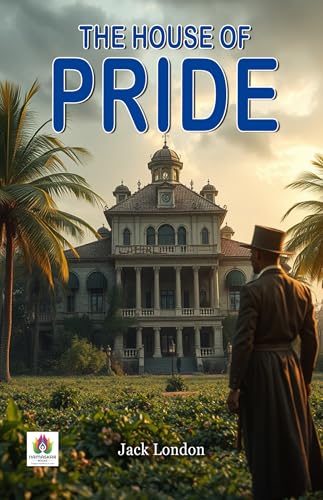
The House of Pride by Jack London is a compelling collection of short stories that invites readers into the vibrant, yet tumultuous landscapes of the Pacific Islands. London’s evocative prose captures not only the beauty of these remote gardens but also the inherent challenges faced by those who inhabit them. Each story offers an intricate tapestry of adventure and human emotion, illustrating the complex interplay between pride, culture, and the indomitable spirit of survival. As much as this collection showcases Europe’s fascination with the exotic and the unknown, it simultaneously serves as a critique of colonialism and its ramifications on indigenous lives. London’s narratives delve into the depths of human nature, portraying characters that are shaped by their environments and the socio-political dynamics of their time. Each tale reflects struggles that resonate with universal themes—be it love, ambition, betrayal, or tragedy. The stories explore the reality of cultural clashes and the moral dilemmas faced by individuals caught between traditional values and the encroaching influence of Western civilization. As you immerse yourself in these powerful tales, you will find London’s social commentary poignant and thought-provoking, inviting reflection on identity and resilience. In the title story, The House of Pride, readers are drawn into a vivid portrayal of a society in transition, where personal ambition collides with communal values. London masterfully illustrates the conflict and struggle that arises when characters are faced with ethical choices that challenge their core beliefs. As the tension builds, London reveals the darker facets of human ambition while showcasing the beauty of conflicting passions. The study of pride, as explored here, presents readers with the stark reality that sometimes personal desires can lead to collective downfall. Through the lens of the Pacific Islands, London's exploration of isolation and survival becomes a metaphor for broader human experiences. The stories delve into the themes of pride and identity, allowing readers to witness how pride can spur greatness or lead to ruin. London’s ability to craft rich characters imbued with depth and complexity brings each storyline to life, making for an engaging read that resonates long after the last page is turned. The collection also reflects London’s characteristic strength in depicting the power of the natural world. His keen observations about the environment serve as a backdrop for the narratives, emphasizing the relationship between nature and humanity. The vivid descriptions transport readers to the lush landscapes and tumultuous seas, intertwining the setting with thematic elements that enhance the storytelling. As readers journey through the tales, they are reminded of how intertwined human experiences are with the landscapes they inhabit. Overall, The House of Pride is an essential work in Jack London’s oeuvre, showcasing his prowess as a storyteller while offering critical insights into themes that remain relevant today. Readers from all walks of life will find themselves captivated by the rich character arcs, immersive settings, and the moral questions posed by London's narratives. This collection is not just a literary experience; it’s an invitation to engage with the complexities of pride, cultural identity, and the harsh but beautiful realities of existence.
Author

John Griffith Chaney (1876-1916), better known as Jack London, was an American novelist, journalist, and social activist. A pioneer of commercial fiction and American magazines, he was one of the first American authors to become an international celebrity and earn a large fortune from writing. He was also an innovator in the genre that would later become known as science fiction. His most famous works include The Call of the Wild and White Fang, both set in the Klondike Gold Rush, as well as the short stories, "To Build a Fire", "An Odyssey of the North", and "Love of Life". He also wrote about the South Pacific in stories such as "The Pearls of Parlay", and "The Heathen". London was part of the radical literary group, "The Crowd," in San Francisco and a passionate advocate of unionization, workers' rights, and socialism. He wrote several works dealing with these topics, such as his dystopian novel, The Iron Heel, his non-fiction exposé The People of the Abyss, War of the Classes, and Before Adam. London died November 22, 1916, in a sleeping porch in a cottage on his ranch. London's ashes were buried on his property, not far from the Wolf House. The grave is marked by a mossy boulder. The buildings and property were later preserved as Jack London State Historic Park, in Glen Ellen, California.